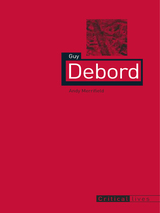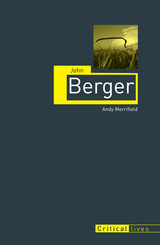
Merrifield explores the dynamics of Debord's ideas and works, including the groundbreaking Howls for Sade and his 1967 classic, The Society of the Spectacle. Debord understood life as art, Merrifield argues, and through that lens he chronicles Debord's stint as a revolutionary leader in the 1950s and 1960s, his time in Spain and Italy during the 1970s and the reclusive years leading up to his death in 1994.
Dada and Surrealism's legacy and punk rock's god, Guy Debord spun theories on democracy, people, and political power that still resonate today, making Merrifield's concise yet comprehensive study an invaluable resource on one of the foremost intellectual revolutionaries of the twentieth century.


Following his hugely popular book, The Wisdom of Donkeys, Andy Merrifield breathes new life into the Marxist tradition.
Magical Marxism demands something more of traditional Marxism - something more interesting and liberating. It asks that we imagine a Marxism that moves beyond debates about class, the role of the state and the dictatorship of the proletariat. In escaping the formalist straitjacket of orthodox Marxist critique, Merrifield argues for a reconsideration of Marxism and its potential, applying previously unexplored approaches to Marxist thinking that will reveal vital new modes of political activism and debate.
This book will provoke and inspire in equal measure. It gives us a Marxism for the 21st century, which offers dramatic new possibilities for political engagement.

The New Urban Question is an exuberant and illuminating adventure through our current global urban condition, tracing the connections between radical urban theory and political activism.
From Haussmann’s attempts to use urban planning to rid 19th-century Paris of workers revolution to the contemporary metropolis, including urban disaster-zones such as downtown Detroit, Merrifield reveals how the urban experience has been profoundly shaped by class antagonism and been the battle-ground for conspiracies, revolts and social eruptions.
Going beyond the work of earlier urban theorists such as Manuel Castells, Merrifield identifies the new urban question that has emerged and demands urgent attention, as the city becomes a site of active plunder by capital and the setting for new forms of urban struggle, from Occupy to the Indignados.
READERS
Browse our collection.
PUBLISHERS
See BiblioVault's publisher services.
STUDENT SERVICES
Files for college accessibility offices.
UChicago Accessibility Resources
home | accessibility | search | about | contact us
BiblioVault ® 2001 - 2024
The University of Chicago Press









